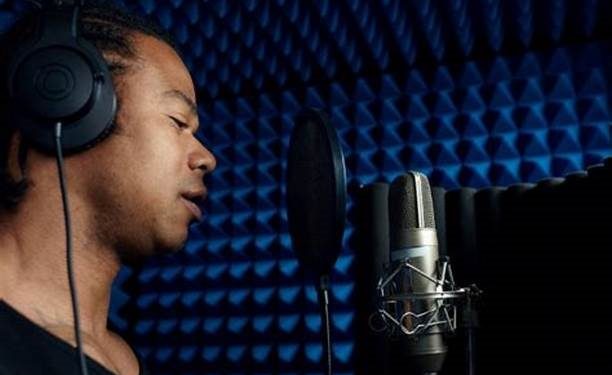Introduction to Vocal Presets
In the world of music production, vocal presets are pre-configured settings used in digital audio workstations (DAWs) to enhance and shape vocal recordings. These presets can include a variety of effects such as equalization (EQ), compression, reverb, delay, and more. Vocal presets are designed to provide a polished, professional sound quickly and efficiently, making them invaluable tools for singers and engineers of all skill levels. This article explores why vocal presets are beneficial for beginners, intermediate, and expert singers and engineers.
Benefits of Vocal Presets for Beginners
Ease of Use
For beginners, navigating the complexities of audio engineering can be overwhelming. Vocal presets simplify the process by offering ready-made settings that can be applied with a single click. This ease of use allows novice singers and engineers to achieve professional-sounding vocals without extensive technical knowledge.
Learning Tool
Vocal presets serve as excellent learning tools for beginners. By studying the settings used in different presets, beginners can gain insight into the principles of audio processing. This hands-on learning approach helps them understand how various effects contribute to the overall vocal sound and how to adjust settings to suit their needs.
Confidence Boost
Achieving a polished sound can be challenging for beginners, leading to frustration and discouragement. Vocal presets provide immediate results, boosting confidence and encouraging further experimentation and learning. Hearing their voice sound professional motivates beginners to continue improving their skills.
Benefits of Vocal Presets for Intermediate Users
Time Efficiency
Intermediate users often have a better grasp of audio engineering principles but may lack the time to fine-tune every detail. Vocal presets save time by providing a solid starting point, allowing intermediate singers and engineers to focus on creative aspects such as performance and arrangement. This efficiency is particularly beneficial when working on multiple projects or tight deadlines.
Consistency
Maintaining a consistent sound across multiple tracks or projects is crucial for intermediate users. Vocal presets ensure consistency by applying the same settings to different recordings, helping maintain a cohesive vocal quality. This consistency is essential for creating a professional-sounding album or EP.
Customization and Experimentation
Intermediate users can use vocal presets as a foundation and then customize the settings to suit their unique style. This flexibility allows for experimentation with different sounds and effects, fostering creativity while maintaining a professional baseline. Intermediate users can learn by tweaking presets and observing the changes in the vocal sound.
Benefits of Vocal Presets for Expert Users
Workflow Optimization
For expert users, vocal presets streamline the workflow by providing a quick and reliable way to achieve a professional sound. This optimization allows expert singers and engineers to spend more time on fine-tuning and creative decisions rather than basic setup. Presets can be particularly useful in fast-paced environments such as live performances or studio sessions with tight schedules.
High-Quality Sound
Expert users demand the highest quality sound in their productions. Vocal presets created by industry professionals offer top-tier settings that ensure exceptional vocal quality. Experts can use these presets as benchmarks, pushing the boundaries of what is possible in their recordings.
Advanced Customization
While presets provide a great starting point, experts can take customization to the next level. They can deconstruct and rebuild presets to create unique sounds tailored to specific projects. This advanced customization allows experts to blend their technical skills with creative vision, resulting in distinctive and polished vocal tracks.
The Role of Vocal Presets in Different Genres
Pop and R&B
In genres like pop and R&B, vocal clarity and presence are paramount. Vocal presets in these genres often emphasize clean EQ, smooth compression, and subtle reverb to ensure the vocals stand out. Presets tailored for pop and R&B can help achieve that polished, radio-ready sound that is characteristic of these styles.
Rock and Metal
Rock and metal vocals require power and aggression. Vocal presets for these genres typically include dynamic compression, saturation, and sometimes distortion to add grit and intensity. These presets help singers and engineers capture the raw energy and emotion that define rock and metal music.
Hip-Hop and Rap
Hip-hop and rap vocals often prioritize clarity and rhythmic precision. Vocal presets for these genres focus on tight EQ and compression, sometimes with added effects like delay and pitch correction for stylistic purposes. These presets ensure that every word is clear and impactful, essential for the lyrical focus of hip-hop and rap.
EDM and Electronic
In EDM and electronic music, vocals are often heavily processed to fit the futuristic and vibrant soundscapes. Vocal presets in these genres can include extensive reverb, delay, and modulation effects, creating otherworldly vocal textures. These presets help singers and engineers achieve the distinctive, polished sound required for electronic music.
Conclusion
Vocal presets are invaluable tools for singers and engineers at every skill level. For beginners, they offer ease of use, confidence-building, and a solid learning foundation. Intermediate users benefit from time efficiency, consistency, and opportunities for customization and experimentation. Expert users can optimize their workflow, achieve high-quality sound, and engage in advanced customization. Across various genres, vocal presets provide the tailored settings needed to achieve professional and genre-specific vocal sounds. Embracing vocal presets can significantly enhance the music production process, allowing singers and engineers to focus on creativity and performance while ensuring top-tier vocal quality.










































































